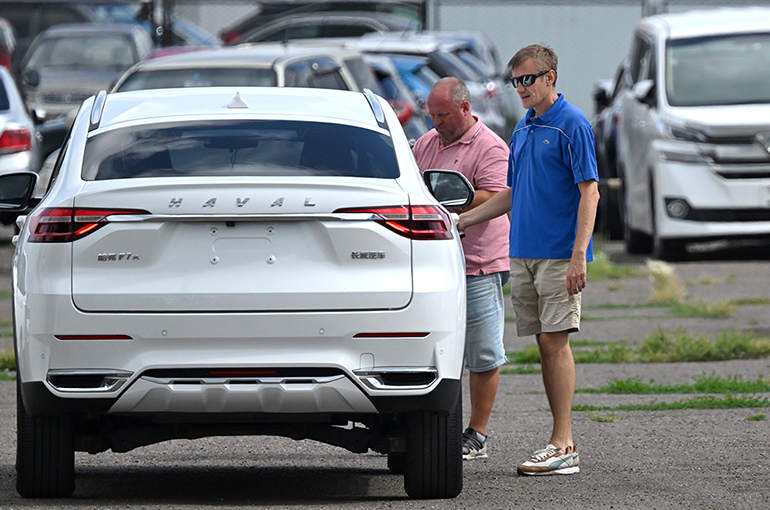 Chinese NEV Exporters to Russia Turn to Used Cars as Market Cools Down
Chinese NEV Exporters to Russia Turn to Used Cars as Market Cools Down(Yicai) Aug. 13 -- The golden period for Chinese new energy vehicle exports to Russia has come to an end, as the market has become saturated. In response, Chinese dealers have begun exporting second-hand cars.
The Russian automotive market is relatively saturated, and the fierce competition for new cars has greatly shrunk gross profit margins, Wang Xiangyu, chief executive officer of Chinese car exporter Yiwei New Energy Technology, told Yicai. However, the Russian used car market is still growing, presenting opportunities, he added.
Yiwei New Energy has adjusted its export structure so that used cars account for 70 percent of its total exports to Russia, Wang noted.
Since the second half of last year, China's exports of used cars to Russia have increased significantly, with a profit of about USD1,000-USD1,500 per car, according to Wang. Some rarer models can even generate profits of up to CNY20,000 to CNY30,000 (USD2,785 to USD4,175).
Wang believes one of the reasons for the increased demand for second-hand cars in Russia is the declining purchasing power of local consumers. Another reason could be that Russia's scrapping taxes on used cars are much lower than on new cars, he added.
Chinese auto dealers began exporting to Russia in 2022, when European and US carmakers withdrew from the market due to the Russia-Ukraine conflict, leaving a huge gap that they quickly filled.
The Russian market share of Chinese car brands rose rapidly in the past three years, up to over 60 percent in the third quarter of last year from only 5 percent in 2021, according to data from the China Passenger Car Association.
However, with more and more Chinese dealers expanding their business to Russia, the local auto market quickly became saturated, and a price war began. Some dealers can only sell at a loss now because of large backlogs of inventory, Wang explained.
Another factor is that the Russian policy environment has changed. To protect the local auto industry, Russia strengthened the tax collection on imported cars last year. Before, Chinese cars could avoid taxes by reaching Russia through Central Asian countries, but in April last year, Russia introduced a new policy to plug this loophole.
Affected by these challenges, Chinese car exports to Russia fell 59 percent to 171,000 units in the first half of this year from the same period last year, the largest decline in a single export market for this period, according to auto information website BitAuto.
The Russian auto market is declining, with new car sales falling 28 percent to 607,500 units in the six months ended June 30 from a year earlier, according to data from Russia's Ministry of Industry and Trade.
Against this trend, Russian imports of second-hand cars rose 2 percent to 181,600 units in the period, with the ratio of used vehicles to the total imports jumping to 55 percent from 30 percent, according to local analyst agency Autostat.
Editors: Dou Shicong, Futura Costaglione